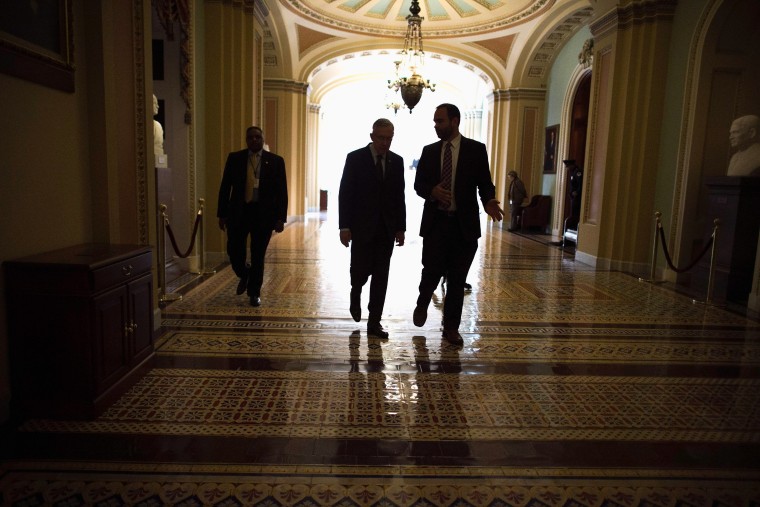The U.S. Senate confirmed President Obama's fourth pick to serve on a key federal appeals court, a nomination that sparked an historic change in Senate rules and launched a fresh round of partisan acrimony. Senators voted 55 to 43 to confirm Robert L. Wilkins to serve on the U.S. Court of Appeals for the D.C. Circuit, which is widely considered the second-most influential federal court in the nation because it handles most cases regarding White House activities and federal rules and regulations and often is a stepping stone for future Supreme Court justices. Wilkins joins Patricia Millett and Cornelia "Nina" Pillard as the most recent additions to the court. Another Obama nominee, Sri Srinivasan, joined the court in May. With those four picks now seated, Democratic appointees will hold a 7 to 4 majority on the bench.
Completing the DC Circuit
As of last night, the resolution of the "nuclear option" crisis is complete -- and the D.C. Circuit is whole for the first time in 23 years.

In June 2012, there were three vacancies on the D.C. Circuit Court of Appeals, generally considered the nation's second-most important federal bench. Eight jurists sat on the D.C. Circuit at the time -- four from Democratic presidents, four from Republican presidents -- and President Obama decided it was time to complete the court by doing what his predecessors had done: send qualified nominees to the Senate to fill the vacancies.
Little did we know at the time how significant this would become.
Obama sent three jurists to the Senate for confirmation. Each one had excellent credentials; each one sailed through the Judiciary Committee without incident, and each one enjoyed the support of a majority of the U.S. Senate. Republicans couldn't find anything wrong with these nominees at all.
But they filibustered the nominees anyway, not because of anything substantive, but because, for the first time in American history, a minority of the Senate decided to reject literally every nominee for the D.C. Circuit, regardless of his or her qualifications, because Americans had the audacity to re-elect a Democratic president. Once a Republican returns to the White House, Republican senators would lift the blockade.
The result was a constitutional crisis of sorts, which was finally resolved last night.
The last of the three nominees from June has finally been confirmed.
Note, without execution of the so-called "nuclear option," Wilkins, Millett, and Pillard would not have been confirmed, regardless of their qualifications and their support from a Senate majority.
Left with no choice, Senate Democrats had to restore majority-rule on judicial nominees. Had Republicans permitted the chamber to vote on these three judges, the rule change likely wouldn't have been necessary, at least not for a while.
A Senate source confirmed last night that this will be the first time in 23 years that the D.C. Circuit will have its full slate in place.